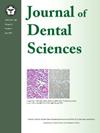评估正颌手术对心理健康、功能和生活质量的影响
IF 3.1
3区 医学
Q1 DENTISTRY, ORAL SURGERY & MEDICINE
引用次数: 0
摘要
背景/目的先前的研究强调了面部畸形的心理负担,但仍然缺乏关于哪些术后变量对心理健康影响最大的证据。本研究探讨颅面错颌正颌手术患者的心理状态、身体功能和生活质量之间的关系,旨在确定精神病学转诊和患者满意度的预测因素。材料与方法在中山医科大学附属医院进行了一项回顾性、单中心研究,回顾了60例2019 - 2024年接受正颌手术患者的去识别病历。评估的变量包括疼痛、口腔功能、焦虑、抑郁、身体形象、面部满意度和生活质量,使用有效的量表。采用Spearman相关分析,然后以精神科转诊为结果变量进行二元logistic回归。结果口腔功能与抑郁呈显著负相关,与情绪障碍呈显著正相关。生活质量与情绪稳定性显著相关,而面部满意度与自我形象呈正相关。Logistic回归分析发现,面部满意度是精神病转诊的显著负向预测因子(OR = 0.64, 95% CI: 0.45-0.92, P = 0.021)。其他预测指标,包括进食困难和心理困扰评分,没有达到统计学意义。结论正颌手术对患者情绪、自我认知和生活质量的影响是多方面的。术后功能和美学的改善与心理结果的改善有关,尤其是自我形象和情绪稳定性。在各种预测因素中,患者对面部外观和功能的满意度是减少精神科转诊需求的最强因素。本文章由计算机程序翻译,如有差异,请以英文原文为准。
Evaluating the impact of orthognathic surgery on mental health, function, and quality of life
Background/Purpose
Prior research highlights the psychological burden of facial deformities, yet there remains a lack of evidence regarding which postoperative variables most strongly influence mental well-being. This study explored the relationship between psychological status, physical function, and quality of life in patients with craniofacial malocclusion undergoing orthognathic surgery, aiming to identify predictors of psychiatric referral and patient satisfaction.
Materials and methods
A retrospective, single-center study was conducted at Chung Shan Medical University Hospital, reviewing 60 de-identified medical records of patients who received orthognathic surgery between 2019 and 2024. Variables assessed included pain, oral function, anxiety, depression, body image, facial satisfaction, and quality of life, using validated scales. Spearman correlation analyses were used, followed by binary logistic regression with psychiatric referral as the outcome variable.
Results
Significant correlations were found between oral function and depression (negative), and between oral function and mood disturbance (positive). Quality of life was significantly associated with emotional stability, while facial satisfaction was positively correlated with self-image. Logistic regression analysis identified facial satisfaction as a significant negative predictor of psychiatric referral (OR = 0.64, 95 % CI: 0.45–0.92, P = 0.021). Other predictors, including eating difficulty and psychological distress scores, did not reach statistical significance.
Conclusion
Orthognathic surgery exerts a multifaceted impact on patients’ emotional well-being, self-perception, and life quality. Postoperative functional and aesthetic improvements are associated with improved psychological outcomes, especially self-image and emotional stability. Among various predictors, patient satisfaction with facial appearance and function was the strongest factor in reducing psychiatric referral needs.
求助全文
通过发布文献求助,成功后即可免费获取论文全文。
去求助
来源期刊

Journal of Dental Sciences
医学-牙科与口腔外科
CiteScore
5.10
自引率
14.30%
发文量
348
审稿时长
6 days
期刊介绍:
he Journal of Dental Sciences (JDS), published quarterly, is the official and open access publication of the Association for Dental Sciences of the Republic of China (ADS-ROC). The precedent journal of the JDS is the Chinese Dental Journal (CDJ) which had already been covered by MEDLINE in 1988. As the CDJ continued to prove its importance in the region, the ADS-ROC decided to move to the international community by publishing an English journal. Hence, the birth of the JDS in 2006. The JDS is indexed in the SCI Expanded since 2008. It is also indexed in Scopus, and EMCare, ScienceDirect, SIIC Data Bases.
The topics covered by the JDS include all fields of basic and clinical dentistry. Some manuscripts focusing on the study of certain endemic diseases such as dental caries and periodontal diseases in particular regions of any country as well as oral pre-cancers, oral cancers, and oral submucous fibrosis related to betel nut chewing habit are also considered for publication. Besides, the JDS also publishes articles about the efficacy of a new treatment modality on oral verrucous hyperplasia or early oral squamous cell carcinoma.
 求助内容:
求助内容: 应助结果提醒方式:
应助结果提醒方式:


